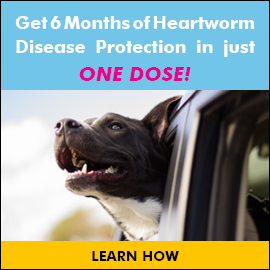
We live in a world in which new strains of infectious diseases are routinely discovered. Antibiotics are often used to combat illnesses caused by bacteria, but symptoms resulting from viral infections cannot be treated with the same drugs.
What does all this mean for a pet owner? For starters, it’s important to know that people can get very sick from direct exposure to an animal’s secretions or via the air. When an illness is passed between species, it’s known as a zoonotic disease. Of the 1,415 viruses, bacteria, fungi, and parasites that infect people, more than half are zoonotic.
Wrapping Around
A zoonotic disease can be very difficult, even scary, to get a handle on. Dogs, cats, birds, rodents, rabbits, pigs, cattle, horses, and other wild animals have the potential to spread disease to us. Luckily, with good hygiene, proper sanitation, and veterinary care, most zoonotic diseases are not found in the United States.
Mosquitoes and ticks are also notorious for spreading zoonotic diseases, such as Lyme disease, malaria, West Nile virus, and Rocky Mountain spotted fever.
Most at Risk
Some people are at heightened risk of contracting a zoonotic disease. We all must do our part to protect:
- Kids under the age of five years old
- Adults 65 years and older
- Expectant mothers
- Individuals with a weakened immune system
Places known to harbor zoonotic diseases include farms, fairgrounds, petting zoos, and any natural setting, such as a trail in the woods or even the beach.
Zoonotic Disease and Your Pet
Puppies and kittens are routinely screened and treated for roundworms, which are a zoonotic parasite. Pets can also carry and infect others with the following types of zoonosis:
- Ringworm, hookworm, tapeworm
- Giardia
- Rabies
- Toxoplasmosis
- Cat scratch fever
- Cryptosporidiosis
- MRSA
- Sepsis
- Leptospirosis
- Tularemia
- Sarcoptic mange or scabies (hedgehogs)
- Salmonella (from reptiles)
- Salmonellosis (from ferrets)
Protect Your Family
While your chances of getting sick from your pet are not necessarily high, there are ways you can protect your pet and your family from a terrible diagnosis:
- Keep up your pet’s necessary vaccinations.
- Maintain year-round parasite prevention.
- Schedule annual wellness exams.
- Pick up your pet’s feces immediately, and do not allow your pet to eat the waste of another animal.
- Model good hygiene for your family via thorough hand washing.
- Clean and replace pet bedding routinely.
- Wear gloves while digging in the soil or handling standing water.
- Disinfect any open cuts, scrapes, or wounds, and keep injuries covered.
- Discourage your pet from licking faces or mouths.
- Keep your pet safe from feral or wild animals.
- Prohibit your pet from drinking any stagnant water.
Pound of Cure
In addition to cats and dogs, we see exotic pets, birds, and pocket pets. As with any illness, a zoonotic disease is easier and less costly to treat when detected early, so please let us know if you notice any changes in your pet’s eating, drinking, sleeping, or elimination behaviors.








